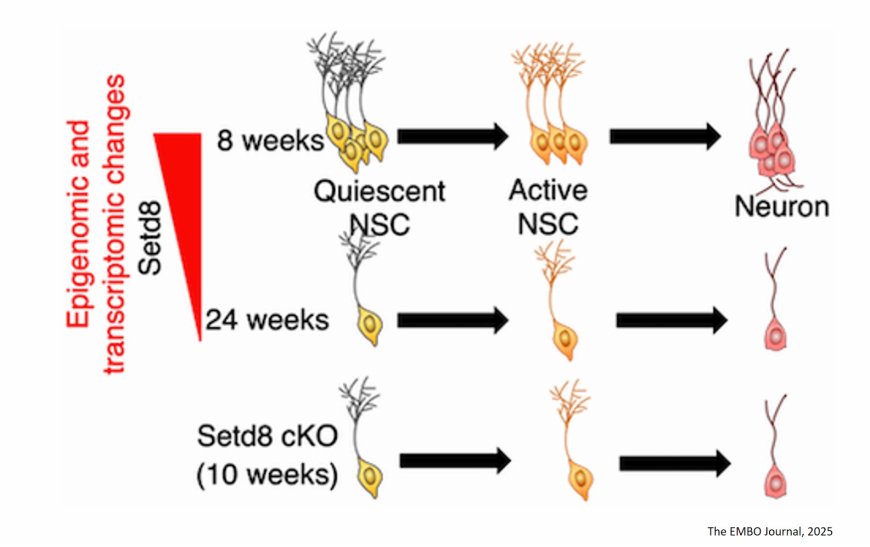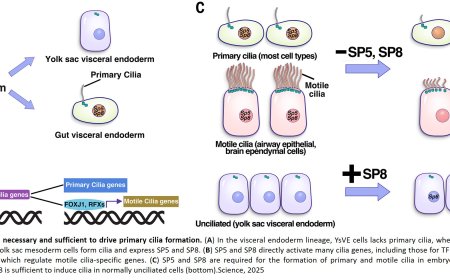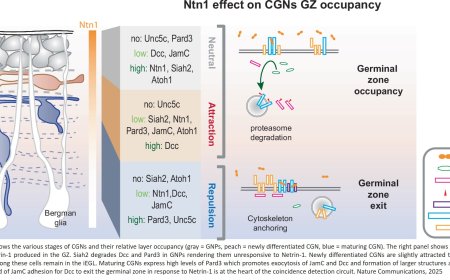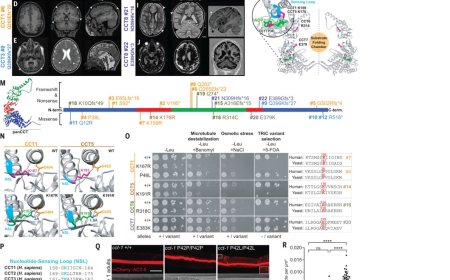Epigenetic regulation of neural stem cell aging

Age often brings a gradual decline in the ability to learn new things and retain memories. This phenomenon, often associated with the elderly, is linked to the brain’s deteriorating capacity to generate new neurons—a process that primarily occurs in the hippocampus —as neural stem cells (NSCs) divide and mature. Recent research suggests this decline begins much earlier in life than previously thought, potentially starting in early adulthood.
While it is established that overall decline in brain function is associated with dwindling NSCs, the precise underlying molecular changes and their timelines remain unclear. Epigenetic changes—modifications that affect gene expression without altering the DNA sequence—play crucial roles in cellular aging, but their impact on NSCs remains unknown.
In this vein, a research team set out to uncover the early aging processes in NSCs. Their study was published in The EMBO Journal.
The researchers used single-cell sequencing techniques to analyze gene expression in NSCs and newly generated neurons across different life stages in mice. This enabled them to map the key molecular changes that NSCs undergo from birth through early adulthood, along with the corresponding alterations in their ability to produce new neurons.
A key discovery was linked to a gene called Setd8, which controls the addition of a chemical tag (molecule) on DNA-packaging proteins called histones. The researchers found that Setd8 showed a marked decrease in expression as the brain aged. In turn, this reduction in Setd8 levels was directly linked to impaired NSC activity and proliferation, as well as noticeable problems in memory in mice.
The team also demonstrated that artificially lowering Setd8 levels mimicked various molecular signatures of aging NSCs, suggesting it could be a critical biomarker of early aging.
Overall, the results highlight the unknown role of Setd8 in NSC aging, which has strong implications from a biomedical standpoint. “Understanding how Setd8 affects neural stem cell aging opens the possibility of developing new therapies to slow down or reverse early brain aging. This could help preserve memory and learning ability, and may lead to future treatments for age-related conditions like Alzheimer’s disease,” remarks the author.
https://www.embopress.org/doi/full/10.1038/s44318-025-00455-8
https://sciencemission.com/Epigenetic-regulation-of-neural-stem-cell-aging













